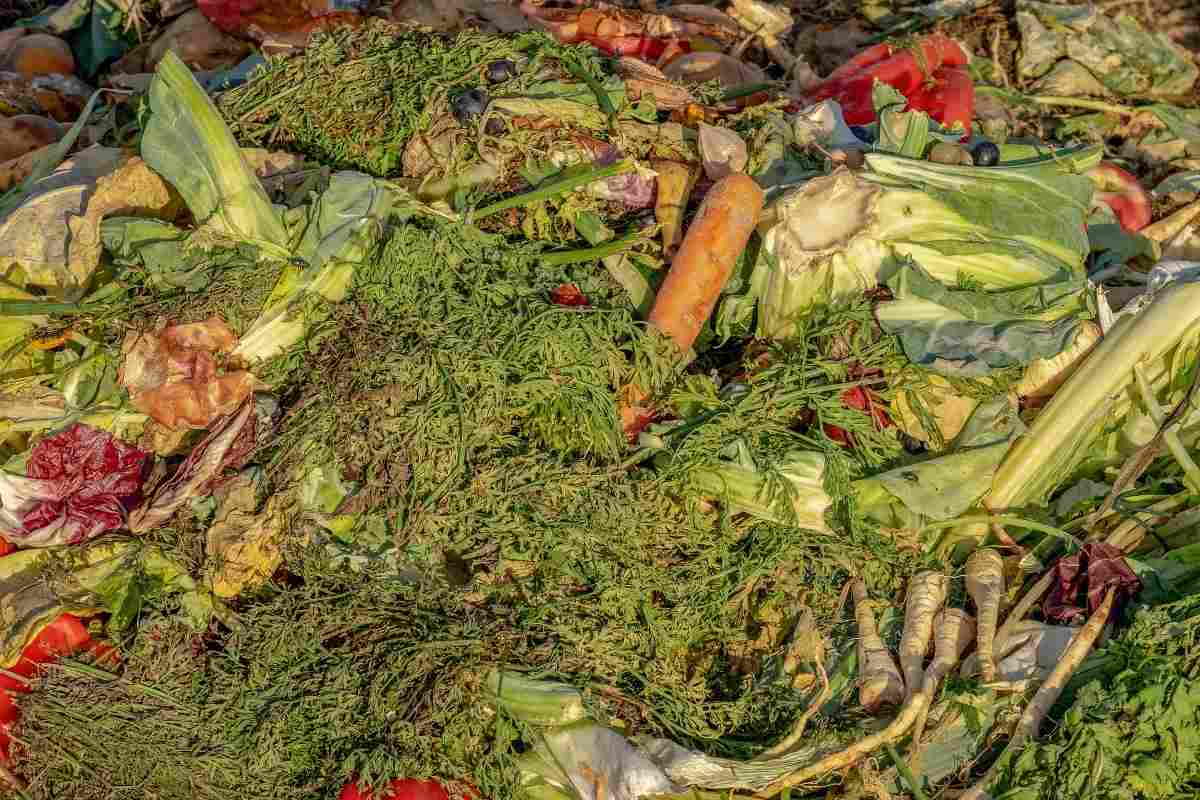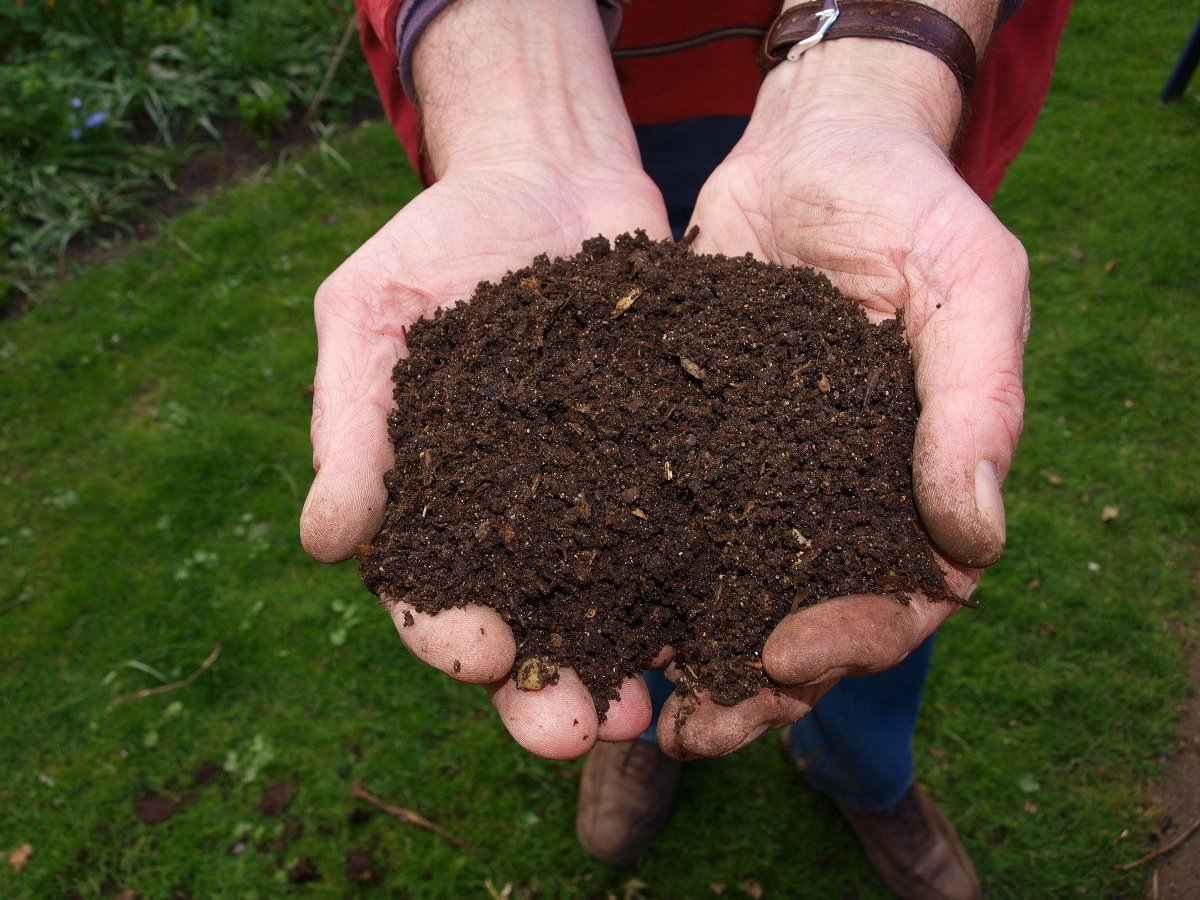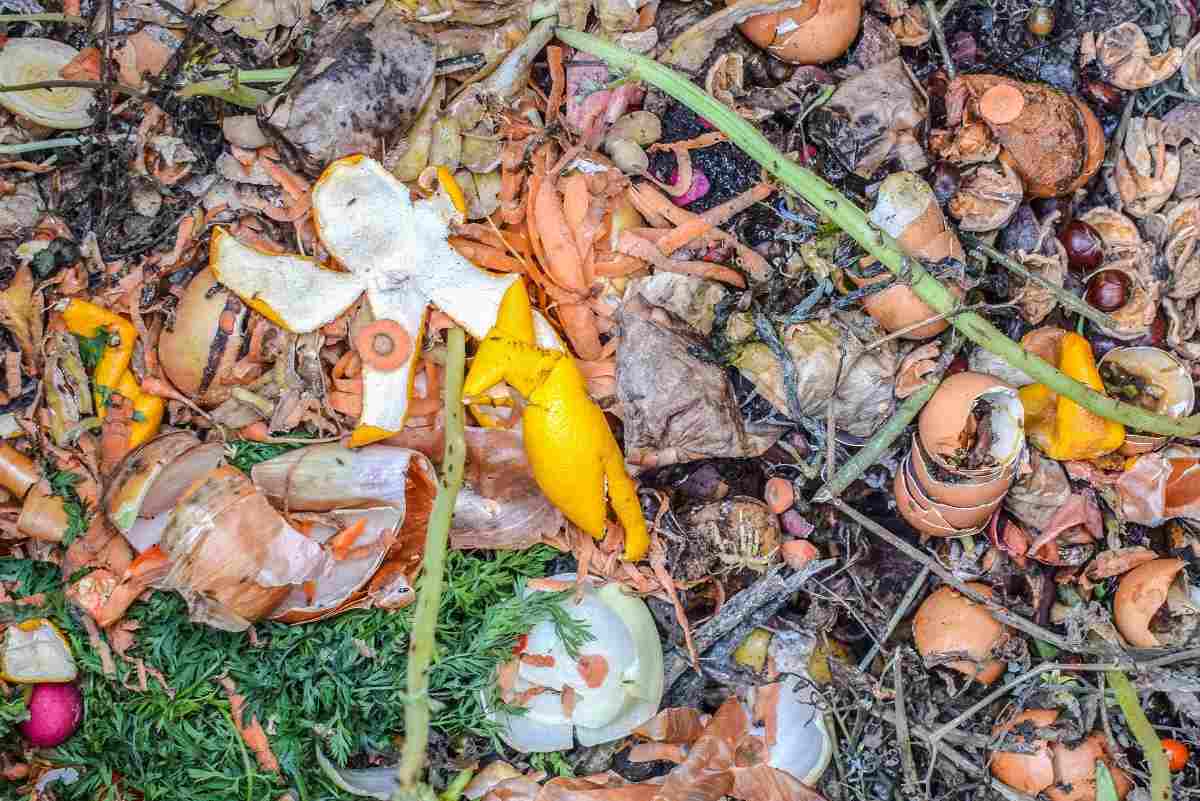Composting Kitchen Waste in Apartments
Hello gardeners, today we are here with a new topic, the topic is all about how to compost kitchen waste in apartments or the process of composting kitchen waste in apartments. Now we will learn about the process of composting waste of kitchen in the apartments in a better way for a better society. Are you a beginner? No issues, now we will learn the process from scratch.
Introduction to Composting Kitchen Waste in Apartments
Composting kitchen waste or scraps is relatively straightforward and it will not require much-specialized knowledge. You just need to know that things like animal products and even oils should not be composted. But you need to beware kitchen scraps alone will not result in compost. I think by this time the composting word has gotten out. The advantages far outweigh simple waste reduction. Compost increases the water storage and drainage of the soil. It helps to keep down the weeds and adds nutrients to the garden. If you’re new to composting, you’ll wonder the way to compost food scraps. There are some ways to start kitchen waste composting. Start saving scraps and let’s start.
A Step By Step Guide to Composting Kitchen Waste in Apartments

If you are at all eco-conscious, it is always time to take a cold and very hard look into the garbage can. Of course, you are recycling already, but a neighbourhood of you knows that each banana skin you add together with your paper towels, your meat trimmings, your old food packages, maybe a piece of food that would similarly be recycled by composting. You will have heard that composting in a very small apartment might not smell great, but it is possible to try to do it without stinking up the place. You do not need an expansive backyard to show your old apple cores into soil gold.
What is Composting Kitchen Waste in Apartments?
Composting is simply and the process of breaking down organic matter that means food waste in the presence of air and water, using microorganisms and very small insects present in nature. The end product is called compost which is very rich in readily usable plant nutrients forming a part of very healthy soil.
Kitchen Waste Composting in Apartments Advantages
Here are five main benefits of composting kitchen waste:
- It will add nutrients to the soil. Compost is humus that is nutrient-rich soil
- It will introduce valuable organisms to the soil. Microorganisms, such as bacteria, fungi, and even protozoa, will decompose high organic material
- It will recycle the kitchen waste
- It will reduce landfill waste
- It is very good for the environment
Kitchen Waste Composting in Apartments Information
It may seem odd initially to save lots of old food and trimmings on your kitchen counter. Traditionally we called that garbage, but new efforts to teach the general public have now trained us in waste reduction and reuse of organic items. Composting kitchen waste is often as simple as burying the food scraps within the dirt or employing a 3-stage composting bin or tumbler. The results are nutrient-rich soil additives that increase porosity and help hold important moisture within the soil. The things that break down very quickly in kitchen composting are leafy greens. It helps to chop down the dimensions of things for compost to no quite an in. cubed. Smaller pieces compost fastest. The slower items are meats and dairy products, though most sources don’t recommend meat for composting. Compost piles must be at the right temperature and moisture balance to make sure of the breakdown of those sorts of items. You will also get to cover any composting kitchen scraps so animals don’t dig them up.
Methods for Composting Kitchen Waste in Apartments
It would not be stretching the truth to say all you need are a shovel and even a patch of dirt for kitchen waste composting. Dig the scraps at least 8 inches down and then cover them with dirt so animals are not tempted to feast on them. Chop up the scraps with the help of a shovel or spade. Very small pieces have more open surfaces for anaerobic bacteria to attack them. This makes composting a very fast process. Alternately you can even invest in a 3-bin type of system where the first bin is filled with raw compost or even fresh kitchen scraps. The second bin will be partially broken down and then well turned. The third bin will hold fully composted material, ready for your place. You can also just make a pile in a sunny location and even layer the scraps with leaf litter, grass clippings, and soil. Turn the compost material every week and then you need to mist it with water when composting kitchen waste.
How to Make Compost from Kitchen Waste in Apartments
Things you will need are listed below:
- Container with lid
- Drill
- Nylon mesh screen
- Hot glue gun
- Dirt
- Kitchen scraps
- Shredded newspapers
Step 1: Drill holes in the container lid
You need to drill five to six evenly spaced holes in the lid of the container for ventilation. Air is the most important and necessary component to help the materials in your bin breakdown, and these holes will help regulate airflow.
Step 2: Add screen
Better take or cut a piece of nylon screen big enough to cover all of the air holes. Then you need to hot glue the screen to the underside of the container lid. This will keep fruit flies and even other bugs from getting in or out of the compost bin.
Step 3: Fill with scraps
By knowing what to put in a compost bin and what to avoid putting in will make your composting experience far more successful and great. Better start with dirt on the bottom and some shredded newspaper on top. Then add kitchen scraps like banana peels, coffee grounds, and even eggshells every day as you cook or when cleaning out your fridge. It is best to break or cut up these scraps into very small pieces to help them decompose faster.
Step 4: Stir
You need to stir the compost about once a week to aerate the mixture. Be sure to put the lid back on tightly to avoid attracting unwanted pests to it. When the compost is almost ready to use, then you can add it to your outdoor compost pile or even search for compost drop-off locations near you.
5 Easy Steps to Composting Kitchen Waste in Apartements
In case if you like Making Chicken Manure Compost for Garden Plants.

1. Separate your edible kitchen waste which includes vegetable peels, fruit peels, and even very small amounts of wasted cooked food in a small container
2. Collect all the dry organic matter which includes dried leaves and sawdust in a small container
3. Take a large earthen pot or even a bucket and drill 4 – 5 holes around the container at different levels to let the air inside the pot.
4. Then you need to line the bottom with a layer of soil.
5. Now start adding food waste in layers alternating wet waste like food scraps, vegetables, and even fruit peels with dry waste like straw, sawdust, dried leaves.
6. You need to cover this container with a plastic sheet or with any plank of wood to help retain moisture and even heat.
Diagram of Composting Kitchen Waste in Apartments

Kitchen Waste Decomposer
Bokashi is a kitchen waste decompose and it is usually made using rice bran, which is mixed with a group of the highest quality bacterial cultures and teeming with billions of live microbes and it is ready to ferment and even compost your food scraps. Bokashi will act as a compost accelerator speeding up the breakdown process of kitchen waste into fertilizer, with odour control in it.
Pros and Cons of Composting Kitchen Waste in Apartments
| Composting Pros ———————– | Composting Cons ———————— |
| Fewer garbage pickups necessary | Composting needs space |
| Fully organic fertilizer | Odour nuisance |
| Soil structure improvements | Varying quality of the compost |
| Higher yields | Unpleasant physical appearance |
| Eco-friendly | Composting takes some time |
| Easy to produce | Compost needs some monitoring |
| Less waste | Involves plenty of work |
What Are the Steps in Composting Kitchen Waste in Apartments
There are 7 easy steps to composting. They are listed below:
Step 1) Choose your type of apartment compost bin. You can use an open pile or even a compost bin.
Step 2) Choose your composter place.
Step 3) Alternate all layers.
Step 4) Add kitchen waste as they accumulate.
Step 5) Continue to add layers until your bin is full until its edge.
Step 6) better maintain your compost bin.
Step 7) At last, harvest your compost.
Commonly Asked Questions About Composting Kitchen Waste in Apartments
What should I not put in kitchen compost?
What not to compost and why not to compost:
- Meat, fish, egg, or even poultry scraps (because of odour problems and even pests)
- Dairy products (because of odour problems and even pests)
- Fats, grease, lard, or even oils (because of odour problems and even pests)
- Coal or charcoal ash (it contains substances harmful to plants)
- Diseased or insect-ridden plants (diseases or insects may spread)
What kitchen scraps or waste can I compost?

What kitchen waste can be composted? Any fruits and vegetable waste, leftover dairy products, grains, bread, coffee filters, crushed eggshells, and even newspapers can be easily composted. If it can be eaten or even grown in a field or garden, it can be easily composted.
How can I turn kitchen waste into compost?
For suppose, if you add one cup of food wastes like vegetables or any fruits, then you need to even add one cup of dry wastes like dry leaves, sawdust, and even newspaper scrap to the mixture. You should not forget to add soil once every week. To fasten the process, you can even add semi-composted soil to your compost.
Can I put kitchen scraps in my garden?
If you have a garden, you can easily bury your scraps or waste of the kitchen right there and then let them compost underground only. You need to just keep your kitchen scraps in a big plastic bucket with a lid. Potato peels, any citrus rinds, different types of greens, any leftover vegetables, eggshells, and even bread. These can be easily buried.
How long does it will take for kitchen scraps to compost?
Test whether the compost is ready or not. Decomposition will be complete anywhere nearly from two weeks to two years by depending on the materials you used to do, the size of the pile, and even how often it is turned. Compost is ready when it has cooled and turned a rich brown colour and has decomposed into small soil-like particles.
What is the best way to compost kitchen waste or scraps?
You can also just easily make a pile in a sunny location and then layer the scraps with leaf litter, grass clippings, and even soil. Then you need to turn in the compost material every week and then you need to mist it with water when composting kitchen waste.
Should compost bins be in the sunlight or shade?
You can put your compost pile in the sunlight or even in the shade, but putting it in the sun will hasten the complete composting process. Sunlight helps increase the temperature, so the bacteria and even fungi work very fast. This also means that your pile will dry out very fast, especially in very warm southern climates.
What is the best composting method in all?
Vermin compost is a very excellent option for the busy and small-space gardener. By getting worms to do most of the work for you, this is one of the most hands-off compost methods used around. Red Wiggler worms are the best and most popular choice for worm composting: they are extremely very efficient waste-eaters.
Can I put banana peels into my kitchen compost?
Composting banana peels is very easy as simple as tossing your leftover banana peels into the compost. You can even toss them in whole, but be aware that they may take longer to compost this way. While, yes, you can even use banana peels as fertilizer, it will not harm your any of the plant and it is very best to compost them first.
That’s all folks about composting kitchen waste in apartments, hope this information will help you to grow plants organically.
- Flower Garden Designs and Layouts for Beginners
- Planting and Spacing Techniques in Papaya: A Beginner’s Guide
- Growing Gold: Essential Techniques for Planting Pineapples
- How to Make Kalanchoe Plant Bushy: Home Remedies and Solutions
- 11 Reasons Why Your Gardenia is Not Blooming: Home Remedies and Solutions
- Eco Elegance: The Guide to Designing a Drought-Tolerant Landscape
- Gardening on a Slope: Strategies for Hillside Landscaping
- Nourish and Flourish: Top Organic Mulches for Thriving House Plants
- Everything You Want to Know about Indian Mogra Flower: Discover Uses and Growing
- Green Thumb Success: Expert Tips for Cultivating Greenhouse Pumpkins All Year Round
- Maximize Growth & Flavor: The Ultimate Guide to Companion Planting in Herb Gardens
- How to Control Rhododendron Problems Naturally: Home Remedies and Organic Ways to Fix Them
- Natural Magic: The Remarkable Benefits of Cinnamon for Plants
- Best Steps to Revive Dying Tulip with Natural and Organic Treatment
- 10 Reasons Why Your Angel Trumpet is Not Blooming: Remedies and Treatment
- How to Fix Periwinkle Leaf and Flower-Related Problems: Natural Remedies and Solutions
- How to Fix Zinnias Leaf and Flower Problems: Discover Natural and Home Remedies
- Organic Steps to Induce Lemon Tree Flowers: A Comprehensive Guide
- Bloom Booster: Crafting the Perfect Homemade Bougainvillea Fertilizer
- Optimizing Growth: A Guide to Applying NPK Fertilizer for Potted Plants
- 10 Best Homemade Fertilizers for Rubber Plant: DIY Recipes and Application Method